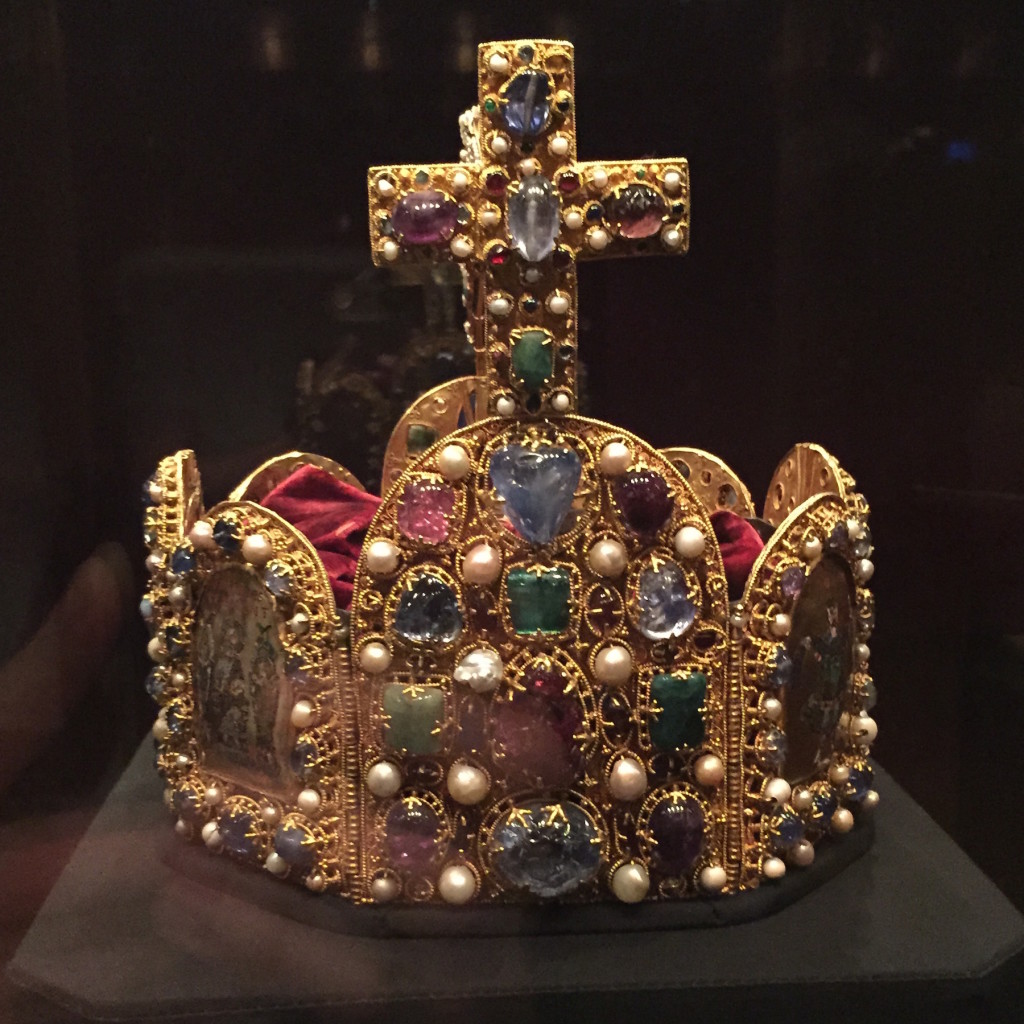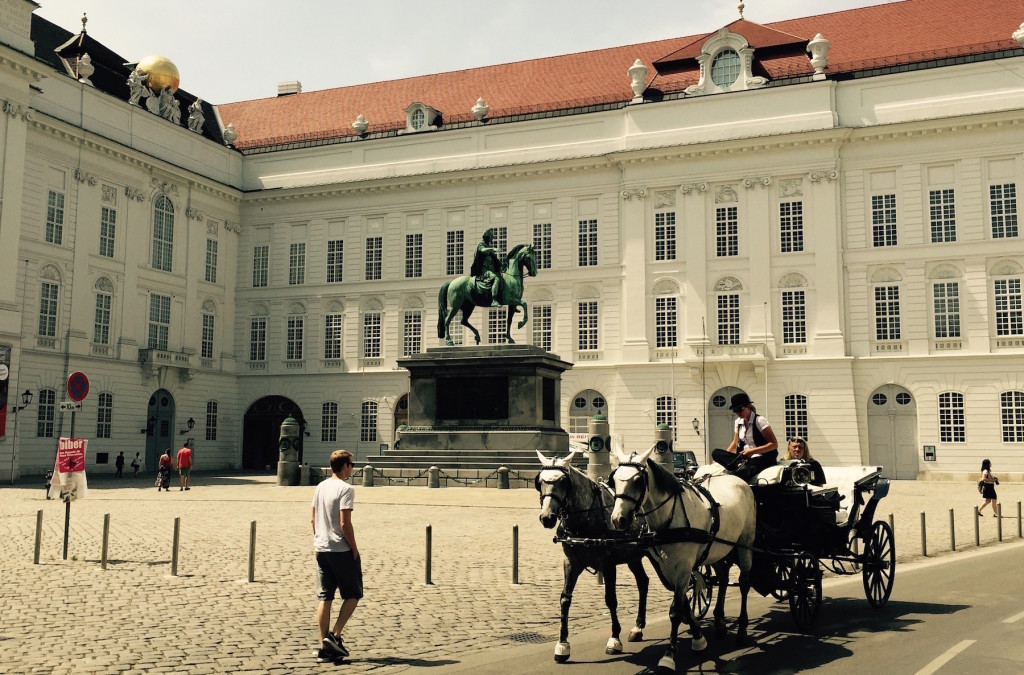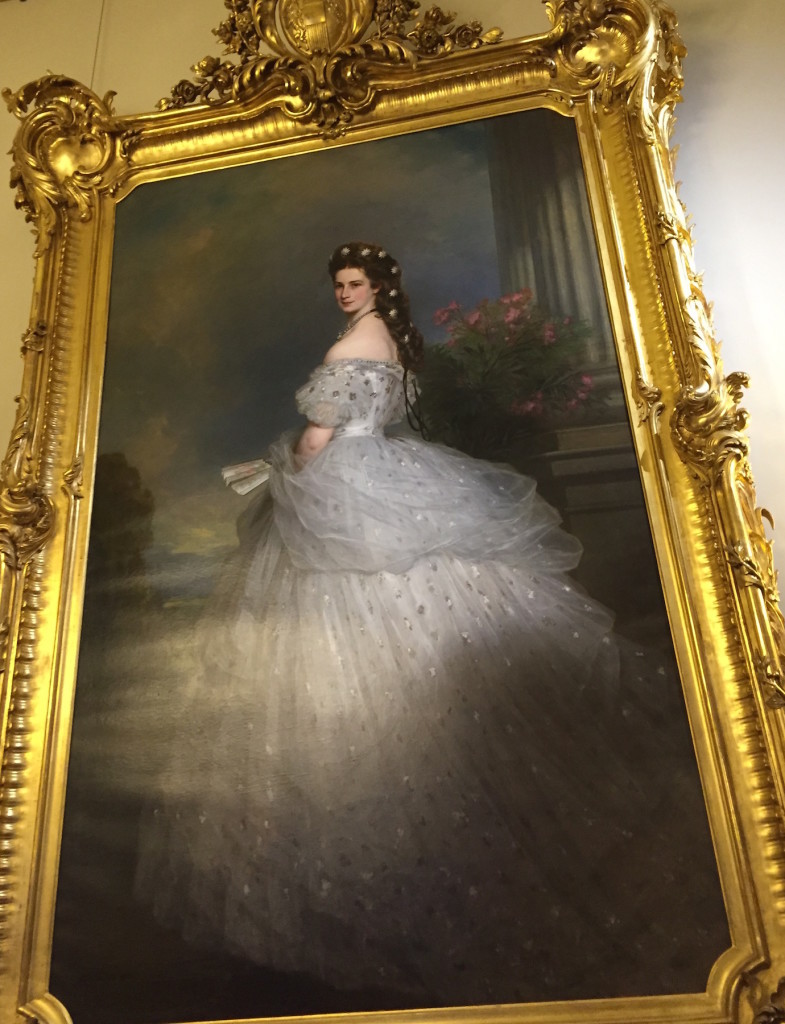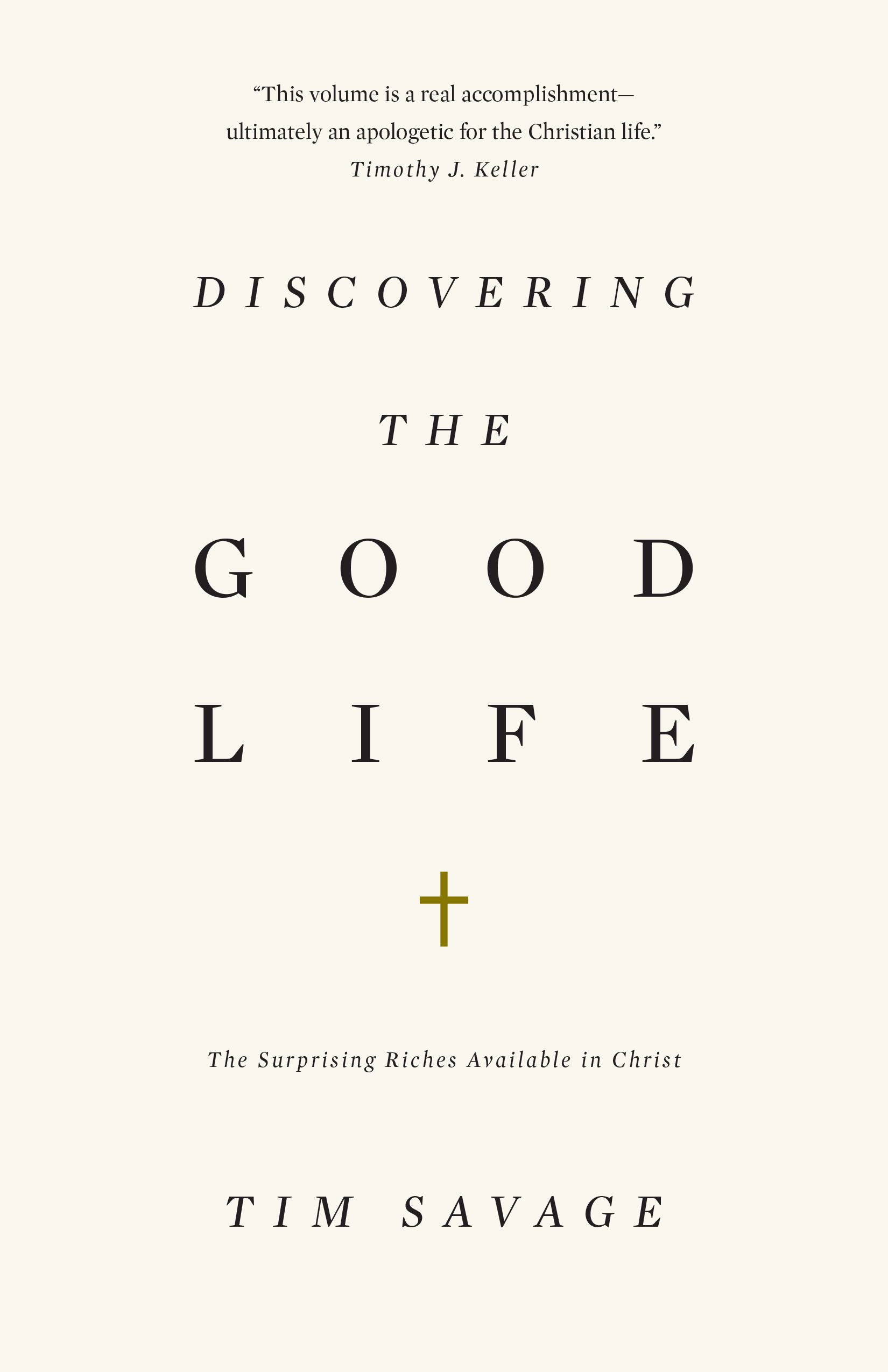Tokens of Love and Gratitude to Christ | Part 17
Originally posted on www.camelbackbible.com.
Fullness of Life
Bidding farewell to Doug and Marina Landro was difficult. Doug has been a good friend and faithful missionary of Camelback Bible Church for 18 years.
Doug had promised to lead us to a border crossing without a two hour wait. Navigating the back roads of Ukraine, most all of them dotted with sizable potholes, Doug emerged at a crossing with only one car in front of us. Ten minutes later, we passed into Hungary, and then crossed a river on a four-car ferry for only 3 forints (the equivalent of three American cents), soon to catch the motorway and to traverse in a few hours the entire east-west length of the nation of the Maygars.

Multi-jeweled, centuries old, priceless crown in royal treasury
We turned off the motorway at two points, first to catch a glimpse of the magnetic Budapest — with Buda on the west side of the Danube River and Pest on the east — enjoying a dinner of goulash soup and wiener schnitzel, and secondly that night to view Bratislava — the capital of Slovokia with its well lighted castle — also astride the Danube. Our destination, into which we pulled well after midnight, was Vienna, Austria, the third great city of the day, also sharing the same river.
Vienna is one of Europe’s grandest spectacles, rivaling London, Paris, and Rome. Much of the building activity in Vienna took place during the Habsburg dynasty, although it reached its final form under Emperor Franz Josef of the nineteenth century.

Royal apartments in Hofburg Palace, with statue of Franz Josef on stallion
Franz Josef was Emperor of Austria and King of Hungary, reigning over the Austro-Hungarian Empire for a lengthy 68 years. As one of the most successful sovereigns of the modern era, he was a hard-working and just king and loved by his people for his benevolence.
He married a Bavarian beauty by the name of Elisabeth, who struggled with the pressures of being Empress. Public duties were a burden to her and public expectations stifled her. For distraction, Elizabeth would spend two to three hours a day in the presence of her hairdresser, who attended to her floor-lenth hair, while another attendant read Homer and educated her in Classical Greek, after which Elisabeth was literally sewn into her corset. She installed in her apartments at the Hofburg Castle one of Europe’s earliest fitness gyms, and exercised regularly in order to maintain her 16 inch waist line.

Portrait of Empress Elisabeth
When responsibilities of court grew intolerable to Elisabeth, she would, with her husband’s blessing, flee Vienna, sometimes for months at a time, and when it came time to return she would predictably fall into a debilitating depression. Adding to her travails, she lost one of her daughters in infancy, and her only son, Crown Prince Rudolf, committed suicide, a tragedy from which she never recovered. In 1898, Elisabeth was herself assassinated by an anarchist in Switzerland. Her husband, Franz Josef, was heard to whisper: ‘No one knows how much I loved that woman.’
Franz Josef himself died in 1916, not long after his cousin and designated successor, Archduke Franz Ferdinand, was assassinated in Sarajevo on 28th June 1914, an event precipitating World War I.
Reflecting on the history of this royal family, I saw a husband and a wife who had everything – ornate palaces (the mighty Hofburg in the winter and graceful Schoenbrunn in the summer), crown jewels (the finest treasury of such gems in Europe), public affection (the objects of the people’s affection), high education (Elisabeth learned several languages and was well as becoming versed in the Classics), and so on and so forth. Yet, contentment was illusive. Family tragedy was constant.
It begged the question: if the Emperor Franz and his Empress, for whom every desire known to human beings was fulfilled many times over, were unable to find fullness of life, then how can the rest of us expect anything different?
The answer: only if we look for fullness of life in more than earthly things. If ever there was proof of the inability of things to make a life, it is found in the hapless sovereigns of the Astro-Hungarian Empire.
Magnificently, there is another Sovereign, who points reliably to fullness of life. And in doing so he points, not to things, but to himself. According to this King, according to Jesus: ‘Live in me and I in you, and you will have abundance of life.’
With such a hope, the three of us – Lesli, Jon, and I – turn our focus to Cambridge, England, where we will reunite with friends from our six-and-a-half sojourn in East Anglia long ago and make strides, hopefully, on a book about why life in Christ is so good.
Read more in this series:
- Tokens of Love and Gratitude to Christ | Part 1
- Tokens of Love | Part 2: History of Poland
- Tokens of Love | Part 3: Through Our Suffering, God Can Work Mightily
- Tokens of Love | Part 4: Freedom in Jesus Christ
- Tokens of Love | Part 5: Poland’s Favorite Sons
- Tokens of Love | Part 6: Peace and Freedom
- Tokens of Love | Part 7: Assurance of Eternal Life
- Tokens of Love | Part 8: Exploring Krakow
- Tokens of Love | Part 9: From Artistry to Depravity
- Tokens of Love | Part 10: The World Slowly Being Transformed into a Wilderness
- Tokens of Love | Part 11: New Life in Christ
- Tokens of Love | Part 12: Reaching Gypsies
- Tokens of Love | Part 13: Grieving the Empty Seats
- Tokens of Love | Part 14: The Greatest Work of All
- Tokens of Love | Part 15: The Kingdom Plans of the Lord
- Tokens of Love | Part 16: Until We Dance at the Foot of God’s Throne


Add your voice to the conversation: